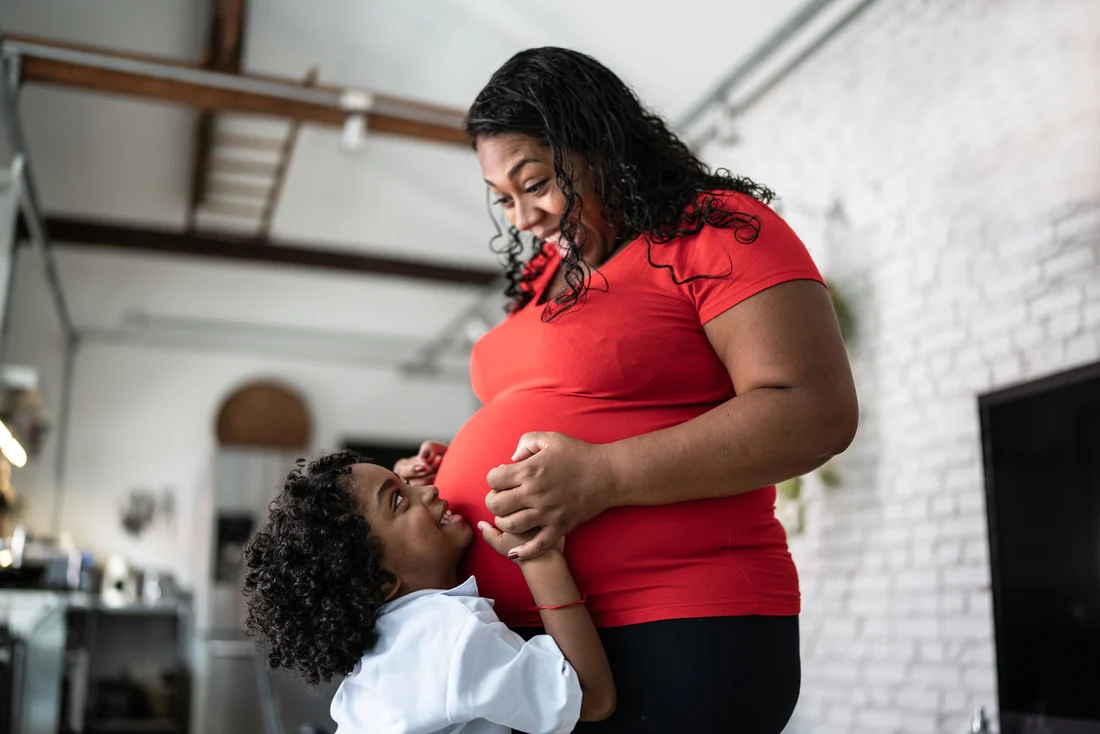Hey there! I’m a proud mom to an energetic 3-year-old named Leo, and I’m expecting my second little one this September. Oh, and did I mention that I have a rare form of dwarfism called diastrophic dysplasia? This condition means I’m almost the same height as my son! I’ve never let my disability define me; instead, I’ve always lived life on my own terms. At 15, I made a bold choice to undergo limb lengthening surgery in hopes of gaining independence. Initially told I’d only grow 3 inches, I ended up adding 14 inches, bringing my height to a proud 4 feet 10 inches.
People often assume that having children might be out of reach for someone with diastrophic dysplasia. Interestingly, my sister-in-law offered to be my surrogate before my husband, Jake, and I even had a chance to consider our options. But when Jake returned from deployment, we quickly realized that we could make it work. Leo was born weighing a healthy 6 pounds, 10 ounces—far exceeding the 3-pound expectation set by my doctors. Achieving what many thought was impossible helps me maintain a positive outlook on parenting.
Whenever I venture out with Leo, whether it’s to a restaurant, a public pool, or the grocery store, I often catch curious glances from onlookers. I can almost hear them thinking, “How does she do it?” Many might wish they could peek into our lives to understand more. So, I thought I’d tackle some common curiosities about parenting with a disability that people might be too shy to ask. I hope my answers resonate with you, whether you’re facing similar challenges or not.
How Did You Have a Baby?
One time, a neighbor asked me, “Who’s the little boy you’re babysitting?” It took a minute for me to realize he was talking about Leo! It made me wonder why it was so hard for him to believe I was a mom. I realized he wasn’t being rude; he was just confused. Honestly, I often ask myself how I managed to have a baby! The truth? I have no clue. I needed assistance with everyday tasks, struggled with my breathing, and had to rely on a wheelchair during my pregnancy. When a capable friend of mine announced her pregnancy struggles, it hit me that every mom faces her own set of challenges, regardless of ability. It’s a tough gig for all of us. We should all acknowledge our strengths—maybe treat ourselves to a new pair of shoes or a refreshing drink every now and then.
Disciplining an Active Child
By 9 months, Leo was already moving around like a little whirlwind. By 2 years old, he was climbing and reaching things I couldn’t. His name fits him perfectly! It’s a challenge to discipline him when he’s so physically capable. Thankfully, I have one advantage: my brain! Leo thrives on attention and wants to please. Sometimes, when I ignore him or step away, he stops to rethink his actions. I’ve learned to pay attention to what motivates him. Interestingly, I’ve seen my husband, who is quite fit, get winded trying to keep up with Leo. I love when I can remind him, “Brains over brawn!”
Fears of a Disabled Mom
Honestly, I dread this question, not because it’s invasive, but because there are so many fears that come to mind! As a kid, I stressed so much that I developed an ulcer. Now, as a mom, I worry about everything—like whether I’m providing the best opportunities for Leo or if he might run away and get hurt. Those fears are universal to motherhood, not just my experience. One memorable moment was when Leo figured out how to open the front door and took off down the driveway. I’ve never sprinted so fast! Luckily, my neighbor helped me out. A good mom always worries, learns from past mistakes, and accepts help when needed.
Does Leo Notice My Disability?
When we go out for longer trips, I often use a wheelchair, and Leo loves to take charge, pushing me around. Sometimes I wonder if he helps me because he sees his dad do it or if he genuinely notices that I’m different. Right now, he just wants my attention and appreciates when I engage with him. Growing up, I learned that differences are only as significant as we make them. I aim to teach Leo that my disability doesn’t define who I am or what I can do.
What If My Child Asks Awkward Questions?
At Leo’s swimming lessons, a little girl once asked, “Why is she so small?” The mom was embarrassed, but I thought it was a fantastic question! Kids are naturally curious, and as adults, we need to remember that their inquiries come from a genuine place. We shouldn’t take it personally. I always try to respond positively and educate where I can. After all, curiosity can lead to understanding and acceptance. I assured the mom that it was a great question and added, “I’m small because my bones don’t grow.”
As we navigate public encounters, I anticipate more questions and looks, which will give me more chances to share my perspective as a mom. There’s no handbook for parenting, especially when it comes to doing it with a disability. But isn’t that what all parents face—adapting and overcoming?
In summary, parenting is a journey filled with unique challenges and joys. Whether you’re navigating life with a disability or just looking for solidarity in the parenting experience, we all share the common thread of love, adaptability, and growth.
For more insights on home insemination, check out this article on intracervical insemination. If you’re considering ways to boost fertility, Make a Mom offers some great resources. For more information on pregnancy and home insemination, don’t miss out on Progyny’s blog.
